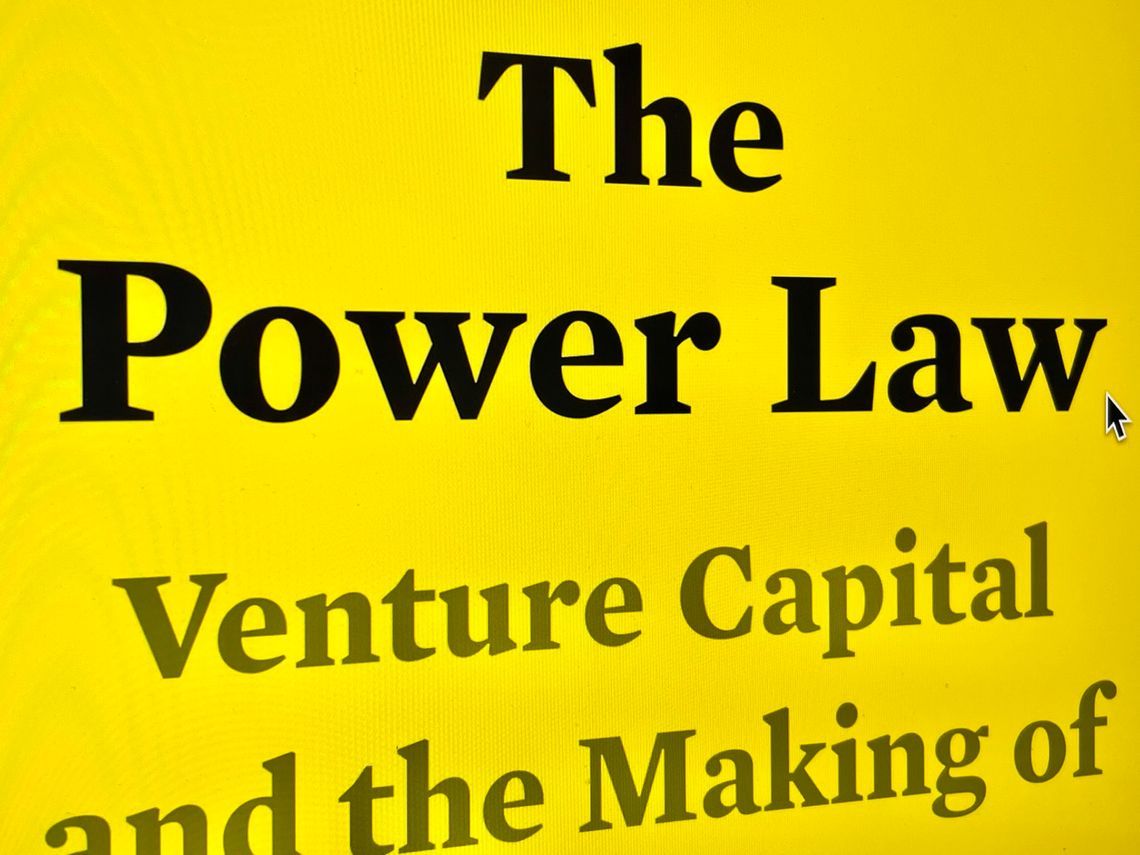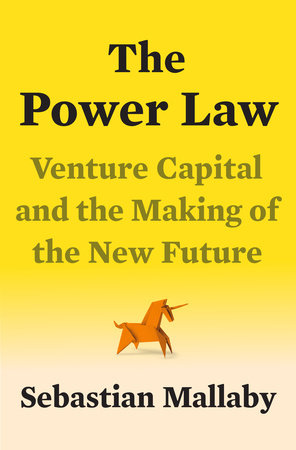Review: The Power Law by Sebastian Mallaby
If you are interested in the world of Venture Capital, Start-Ups and Silicon Valley, just read this book. A well-written book with a very thorough foundation.

Although I've been working professionally with the web since 1993, I've never had much insight into the financial side of it. I produce content and deal with scaling websites and online marketing.
But now I wanted to know more about the forces of money in the world of Big Tech and Startups. To better understand my professional Werdegang. And also to see what the possibilities are if I want to further fund or invest in another company or startup. And to be able to join the discussion.
The book The Power Law
Through a podcast of Azeem Azar, I heard of Sebastian Mallaby and his book The Power Law.
That book is so full of names, facts, and stories that there is little point in recounting or summarizing it. If you are interested in the world of Venture Capital, Start-Ups and Silicon Valley, you simply must read it. A well-written book with a very thorough foundation.
Mallaby does a masterly job of narrating Venture Capital from 1948 to the present day. He recounts the stormy developments in 14 chapters. Some histories are analytical but many are narrative and tell of the characteristics of individual players such as Thiel, Andreessen, Son, or Milner. What drives them, what are the strengths or weaknesses of their personalities.
What is forceful about the book is how you feel that times are changing, when the public internet will be big in the mid-nineties. It's like there are boats, and you know a hurricane is going to hit. Who will survive it and how? Very excitingly written.

Do VC's make a substantive contribution?
Much of the book, in addition to the stories, revolves around whether Venture Capital makes a substantive contribution or whether they are a coincidental factor in the successes. Mallaby writes about this:
The undoubted success of VC-backed companies is often qualified with a question: Did the VCs create the success, or did they merely show up for it? But, as we have seen already, another line of research shows how startups that have the benefit of venture guidance fare better than their peers, and this book has related multiple cases of VCs positively impacting portfolio companies. Besides, even if it were the case that VC skill lay entirely in deal selection, and not in mentoring startups, that skill would still be valuable. Intelligent deal selection increases the chances that the most deserving startups will get the capital they need. It ensures that society’s savings are allocated productively.
This book has pushed back against the randomness thesis, emphasizing instead the skill in venture capital. It has done so for four reasons.
- First, the existence of path dependency does not actually prove that skill is absent.
- The second reason to believe in skill lies in the origin story of some partnerships
- Third, the idea that venture capitalists get into deals on the strength of their brands can be exaggerated.
- Fourth, the anti-skill thesis underplays venture capitalists’ contributions to portfolio companies.
This book has also made a second argument. Whatever the skills of particular venture partnerships or individual VCs, venture capitalists as a group have a positive effect on economies and societies.
The book The Power Law by Sebastian Mallaby is a cleverly written, exciting and informative book about the revolutionary developments in information technology. A book worth reading for a better understanding of the financial dynamics behind this industry.

Venture Capital names and terms
I will definitely reread the book later and I noted a lot of names and terms I will research further. As a sort of bread crumbs I put them here as reminders and in the hope the birds don’t eat them.
Names
- Arthur Rock
- Klein Perkins
- Tom Perkins
- John Doerr
- Peter Thiel, Libertarianism
- Y Combinator
- Sequoia Capital
- Michael Moritz
- Elon Musk
- Accel capital
- Arthur Patterson
- Yuri Milner
- Marc Andreessen A16Z
- Horowitz
- Benchmark Capital
- Roelof Botha
- Founders Fund
- Paul Graham
- Gurley
- Mitch Kapor
- Sean Parker
- Son, Masayoshi
- Tiger Global
- Donald Valentine
Terms
- Angel investing
- Seed
- First Round A
- Round B
- Employee Stock
- IPO
- Growth investing
- Limited Partnerships
- Private Limited Partnerships
- Network effects
- Path Dependency
- Power Law
- Preferred stock



